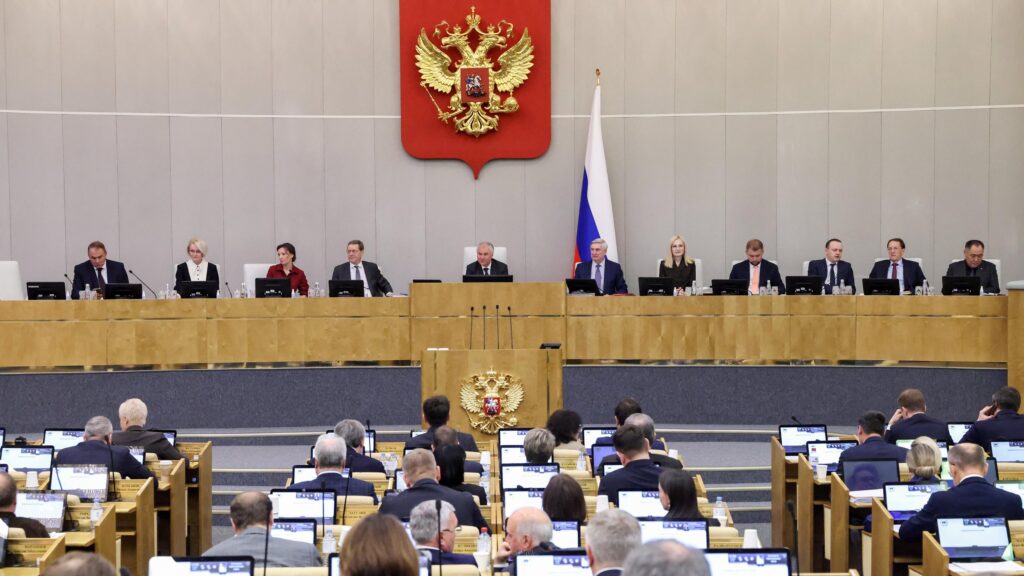MOSCOW (Realist English). Russia’s State Duma has approved the federal budget for 2026 and the planned period of 2027–2028 in its third and final reading, adopting a spending plan that prioritises social support, demographic programmes and assistance for participants in the military campaign in Ukraine.
Announcing the vote, Duma Speaker Vyacheslav Volodin said the government would “fully meet all social obligations” despite what he described as an “unprecedented” external environment.
“More than 30,000 sanctions have been imposed on our country. You see the unfriendly actions the European Union is taking against our assets,” Volodin told lawmakers, adding that the budget sets “higher standards” for social guarantees, including expanded support for servicemen involved in what Moscow calls the “special military operation.”
Major increases for demographic policy
More than ₽10 trillion ($110bn) will be allocated over the three-year period to demographic measures. Key programmes include:
- a unified child benefit for low-income families;
- continuation and indexation of maternity capital;
- more than ₽2 trillion for housing support for families with children, including subsidised mortgages and lump-sum payments of ₽450,000 for large families to repay part of home loans;
- from 2026, an annual family payment compensating part of income tax for households with two or more children.
The subsistence minimum will gradually rise to ₽18,939 in 2026, ₽19,697 in 2027, and ₽20,485 in 2028. The minimum wage will reach ₽27,093 in 2026.
Broader social and infrastructure spending
The budget continues state investment in healthcare and education and adds targeted funds in 2026 for:
- school renovations (₽2.2bn),
- social scholarships (₽3bn),
- military training centres (₽1.7bn),
- subsidised medicines (₽10bn),
- regional and local roads (₽65bn),
- rural development programmes (₽13.4bn),
- support for small agricultural producers (₽7.8bn),
- upgrades to public transport fleets (₽12.8bn).
Additional funding will also go toward agricultural machinery and social gasification in rural areas.
Support for veterans and NGOs
One of the key amendments approved by lawmakers expands financing for the state-backed “Defenders of the Fatherland” foundation, which assists veterans and families of servicemen. Funding will exceed ₽50bn. Other NGOs working with military families, volunteer search groups and disability organisations will also receive additional budget support.
Fiscal outlook
Budget revenues for 2026 are projected at ₽40.3 trillion, with expenditures at ₽44 trillion, leaving a deficit of ₽3.8 trillion.
The government says the plan balances social priorities with long-term investment needs while maintaining macroeconomic stability under sanctions.
